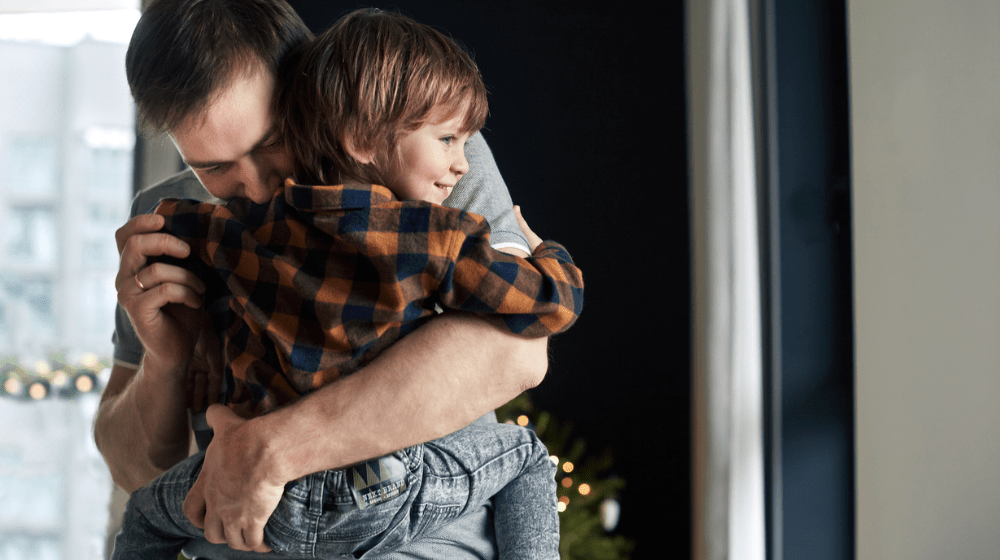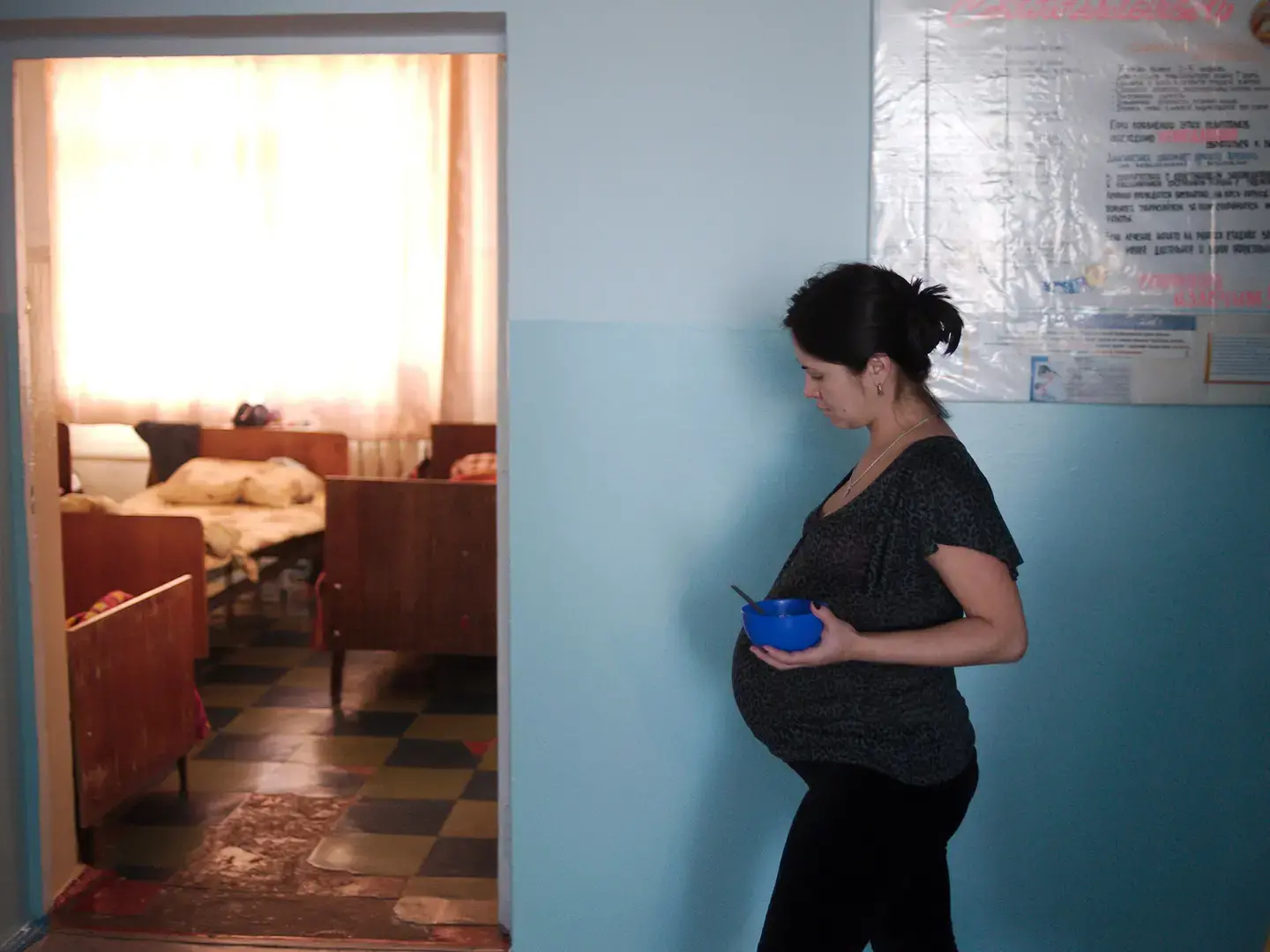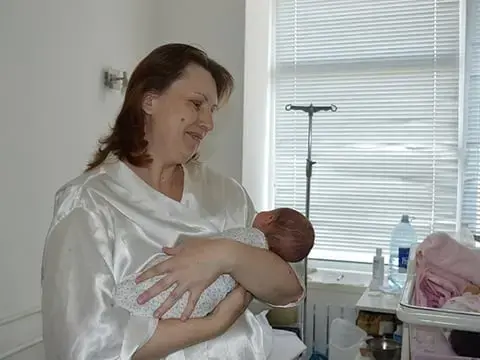In a groundbreaking effort to reshape traditional family dynamics, the “EU 4 Gender Equality” programme’s Fathers’ Schools are not only encouraging men to embrace their roles as engaged fathers but also creating pathways for women to thrive in the workforce.
A win-win initiative for families and society
The “EU 4 Gender Equality” programme launched Fathers’ Schools back in 2021. They offer interactive spaces designed to actively engage men in their parenting roles and promote shared responsibilities within families.
To date, 3,846 men have benefited from attending one of the 49 Fathers’ Schools opened in Armenia, Azerbaijan, Belarus, Georgia, Moldova and Ukraine.
Each school is adapted to the local culture and context as they teach the importance of men's responsibilities in parenting. Activities can range from cooking master classes for fathers and their children in one country to courses for first-time parents and lectures on gender-based violence in another.
"Fathers’ Schools foster a culture of engaged and responsible fatherhood, challenge traditional gender roles, and encourage men to embrace a more supportive and inclusive approach to parenting and partnership. This contributes to the broader goal of gender equality," said Tofig Sadikhov, a Fathers’ School facilitator from Azerbaijan.
A recent assessment of gender norms and stereotypes in the EU’s Eastern Partnership countries indicated a successful influence on the attitudes of men who attended the Fathers’ Schools. Participants reported a stronger belief that both women and men share equal responsibility for providing for the family, with 57 per cent supporting this view compared to 39 per cent of non-participants. Similarly, 61 per cent of Fathers’ School participants believed that household tasks should be equally managed by women and men, while only 42 per cent of non-participants held this belief.
This transformation can change the dynamics in families by creating more balanced partnerships. During a focus group discussion conducted as part of the assessment in Azerbaijan, one woman whose husband took part in the Fathers’ School said, “I started to feel like my husband was more involved, and we have become more of a real team. All of this knowledge has really helped us get through pregnancy, childbirth and the infant phase. Honestly, if we had not had the school’s training, I feel like we would have made a mess of things.”
Research shows that when fathers are positively engaged in the lives of their children, their children are more likely to have better mental and physical health, perform better academically, have higher cognitive and social skills, display higher self-esteem and tolerance to stress, and experience fewer behavioural problems. And the benefits extend to fathers themselves too: Fathers who take time for active parenting live longer, are less likely to abuse drugs, are more productive at work, have generally fewer mental and physical difficulties, and report being happier than fathers without close connections with their children.
"The Fathers’ School has been a magic kick in the rear to make me pay more attention to my own children,” said Yevhen, 32, from Kherson, Ukraine. “Involved fatherhood leads to better and friendlier relationships with my kids. When you pay more attention to the kids, you become more responsible and careful. You care about the interests and needs of your child. This kind of relationship gives a child the feeling of a father’s support,” he added.
Shared care - an important enabler for women's economic empowerment
Unpaid domestic and care work is a significant barrier to gender equality and women’s economic and social empowerment. In Eastern Europe and Central Asia, women spend an average of five hours per day on unpaid work, while men contribute only about two hours. Increasing men’s participation in unpaid domestic and care work creates opportunities for women to make informed choices about seeking paid employment.
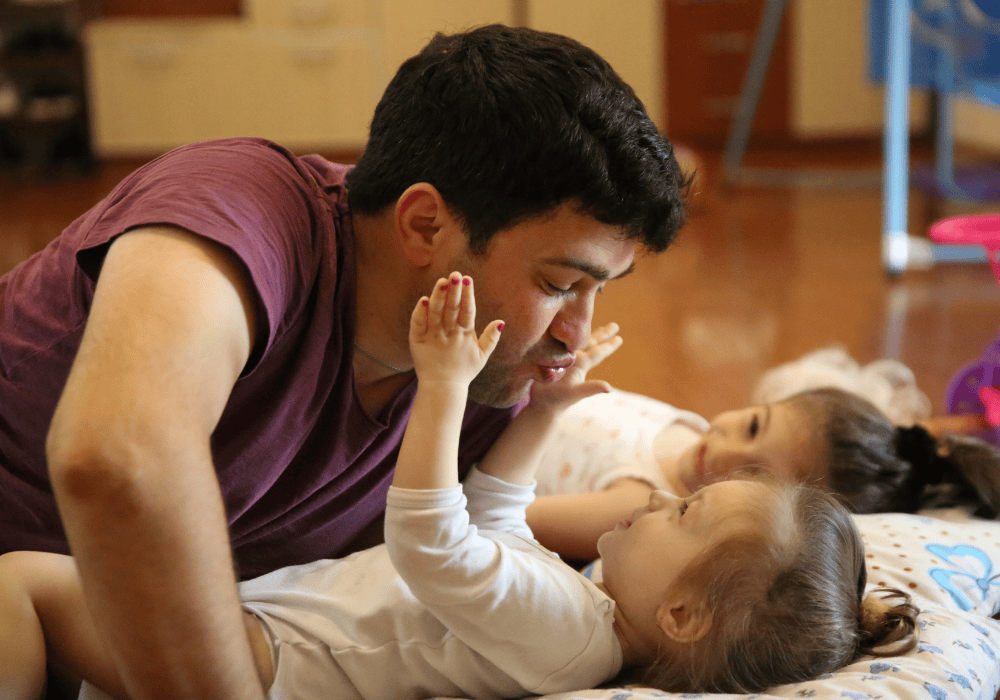
The Fathers’ Schools aim to address this imbalance by shifting harmful stereotypes and promoting both gender equality and women’s economic empowerment.
“The wife should not be the only one who is involved in care work. The husband needs to be equally involved. Both should take care of their child's education and share house chores,” said Stanislav, who participated in the Fathers’ School in the Republic of Moldova.
Spotlight on Ukraine
The devastating war in Ukraine has brought about immense challenges for many families. According to the UN Refugee Agency more than two years of full-scale Russian invasion have displaced approximately one-third of Ukrainians. Around 3.7 million are currently displaced within the country, while some 5 million are displaced as refugees abroad. The World Health Organization expects that approximately 9.6 million people in Ukraine affected by war may have a mental health condition such as depression, anxiety and post-traumatic stress disorder. These hardships have exacerbated existing gender inequalities and placed a significant strain on family dynamics.
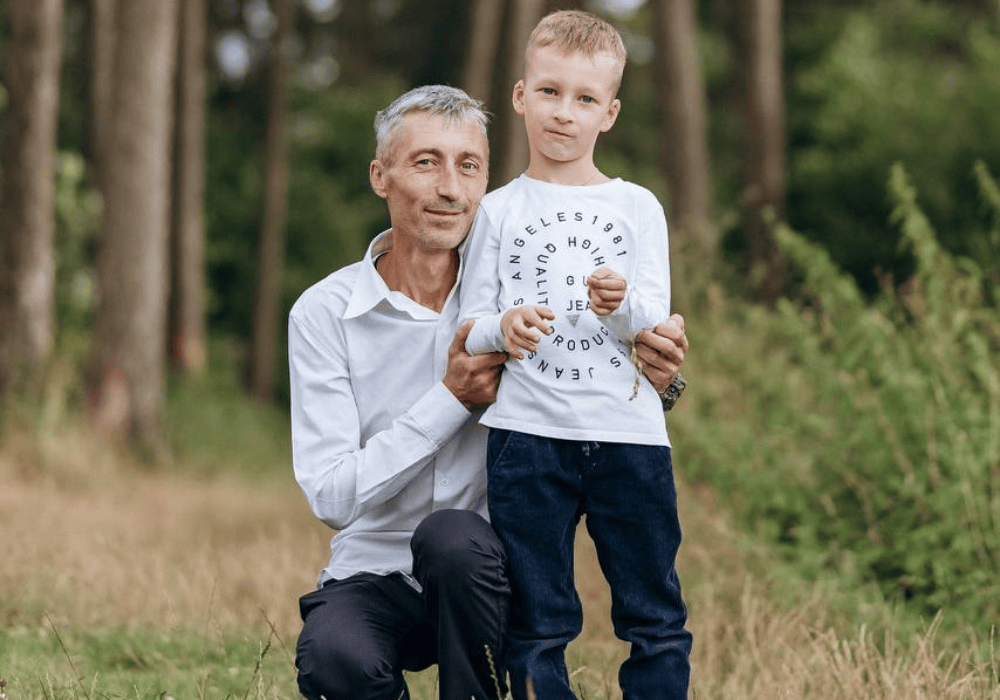
In the first ten months of the full-scale invasion, Fathers’ Schools, known as Tato Hubs in Ukraine, provided an immediate humanitarian response. They worked in cooperation with crisis centres, regional hospitals and perinatal care centres to offer essential female and family support kits to vulnerable women, including single mothers, pregnant and lactating women, and women with disabilities As the war continued, the Tato Hubs adapted their services to meet the unique needs of men and families, providing support that addressed both the fathers’ emotional well-being and the importance of engaged fatherhood. They also offered specialized resources for veterans, helping them navigate reintegration challenges while fostering strong family relationships.
“The first time I attended a master class at a Tato Hub, it marked the beginning of my journey to rebuild communication with my 5-year-old son. I started to see him open up during our conversations. I am very glad I joined the Tato Hub; it allowed me to reflect on my mistakes, strengthen our family bonds, and become a better father,” said Volodymyr, a veteran who lost all connection with his son during his time in service—an experience faced by many veterans returning home.
Tato Hubs have quickly become an essential source of support for veterans and their families. To date, more than 200 families of veterans have benefited from activities at the Tato Hubs. They offer individual and family counselling sessions aimed at addressing mental health challenges, improving communication and rebuilding relationships. Specialized courses for veterans and their partners focus on non-violent communication, stress management and coping with trauma.
By recognizing the unique challenges faced by men and families in Ukraine, the Tato Hubs contribute to fostering resilience and promoting gender equality. Their efforts extend beyond veterans, supporting all families affected by the war.
Building a lasting impact
During its second phase, the Fathers’ School project has focused on scaling up and institutionalizing the work started in 2021. To ensure there is sufficient human capacity to drive the Fathers’ Schools in the region, 23 master facilitators have been trained and empowered to continue their important work in the community. The “EU 4 Gender Equality” programme remains focused on shifting discriminatory gender stereotypes and promoting gender equality by empowering women and men and girls and boys across the EU’s Eastern Partnership countries.
The article is produced in the framework of the “EU 4 Gender Equality: Together against gender stereotypes and gender-based violence” programme, funded by the European Union, implemented jointly by UN Women and UNFPA.
This article was produced with the financial support of the European Union. Its contents are the sole responsibility of UN Women and UNFPA and do not necessarily reflect the views of the European Union.

